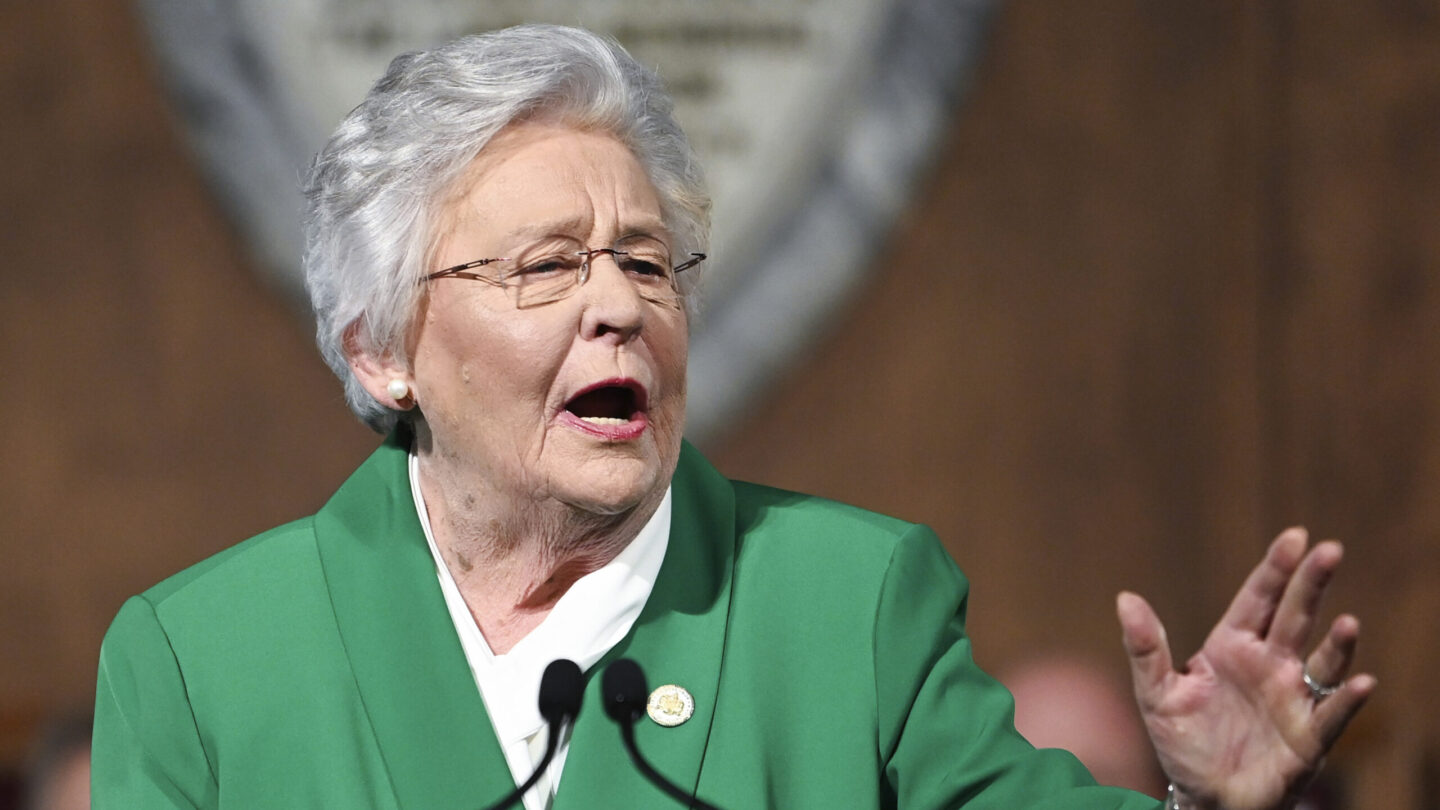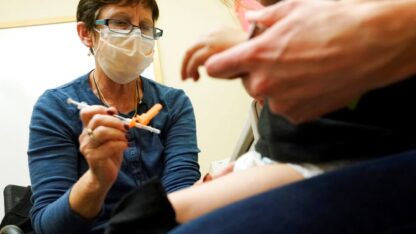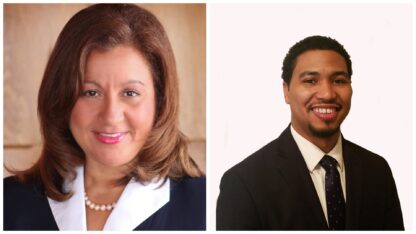MONTGOMERY, Ala. —Alabama Gov. Kay Ivey on Friday announced she replaced her director of early childhood education over the use of a teacher training book, written by a nationally recognized education group, that the Republican governor denounced as teaching “woke concepts” because of language about inclusion and structural racism.
Barbara Cooper was forced out as as head of the Alabama Department of Early Childhood Education after Ivey expressed concern over the distribution of the book to state-run pre-kindergartens. Ivey spokesperson Gina Maiola identified the book as the National Association for the Education of Young Children (NAEYC) Developmentally Appropriate Practice Book, 4th edition. Maiola said she understands that the books have been removed from the state classrooms.
“The education of Alabama’s children is my top priority as governor, and there is absolutely no room to distract or take away from this mission. Let me be crystal clear: Woke concepts that have zero to do with a proper education and that are divisive at the core have no place in Alabama classrooms at any age level, let alone with our youngest learners,” Ivey said in a statement.
Ivey’s statement comes as conservative politicians have made a rallying cry out of decrying so-called “woke” teachings, with schools sometimes emerging as a flashpoint over diversity training and parents’ rights.
The governor’s office said Ivey first asked Cooper to “send a memo to disavow this book and to immediately discontinue its use.” Ivey’s office did not say how Cooper responded but that the governor made the decision to replace Cooper and accepted her resignation. Cooper could not immediately be reached for comment.
The book is a guide for early childhood educators. It is not a curriculum taught to children.
The governor’s office, in a press release, cited two examples from the book — one discussing white privilege and that “the United States is built on systemic and structural racism” and another that Ivey’s office claimed teaches LGBTQ+ inclusion to 4-year-olds. Those sections, according to a copy of the 881-page book obtained by The Associated Press, discuss combating bias and making sure that all children feel welcome.
“Early childhood programs also serve and welcome families that represent many compositions. Children from all families (e.g., single parent, grandparent-led, foster, LGBTQIA+) need to hear and see messages that promote equality, dignity, and worth,” the book states.
The section on structural racism states that “systemic and structural racism … has permeated every institution and system through policies and practices that position people of color in oppressive, repressive, and menial positions. The early education system is not immune to these forces.” It says preschool is one place where children “begin to see how they are represented in society” and that the classroom should be a place of “affirmation and healing.”
NAEYC is a national accrediting board that works to provide high-quality education materials and resources for young children. In an emailed response to The Associated Press, the group did not address Ivey’s statements but said the book is a research-based resource for educators.
“For nearly four decades, and in partnership with hundreds of thousands of families and educators, Developmentally Appropriate Practice has served as the foundation for high-quality early childhood education across all states and communities. While not a curriculum, it is a responsive, educator-developed, educator-informed, and research-based resource that has been honed over multiple generations to support teachers in helping all children thrive and reach their full potential,” the statement read.
Cooper is a member of the NAEYC board. In a previously published statement on the organization’s website about the latest edition of the book, Cooper said that book teaches, “applicable skills for teaching through developmentally appropriate practices that build brains during the critical first five years of life.”
Alabama’s First Class voluntary pre-kindergarten programs operates more than 1,400 classrooms across the state. The program has won high ratings from the National Institute for Early Education Research.
Copyright 2023 NPR. To see more, visit https://www.npr.org.
9(MDAxODM0MDY4MDEyMTY4NDA3MzI3YjkzMw004))

9(MDAxODM0MDY4MDEyMTY4NDA3MzI3YjkzMw004))








